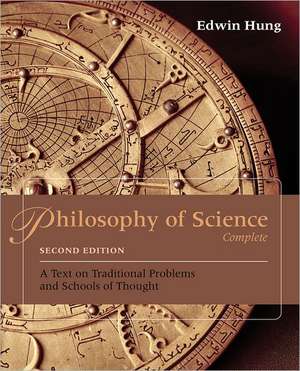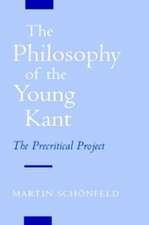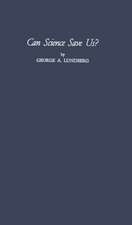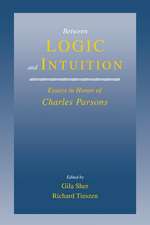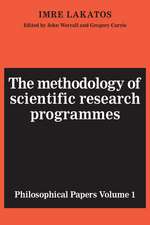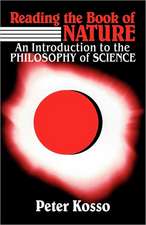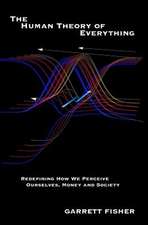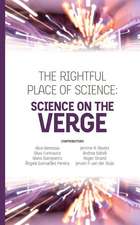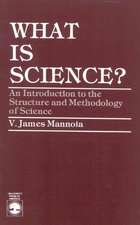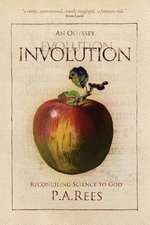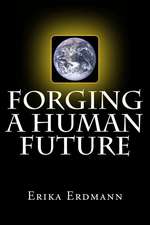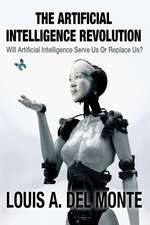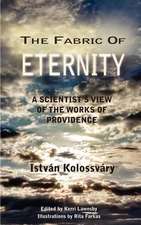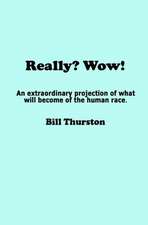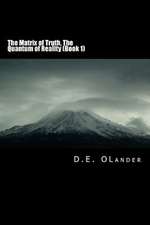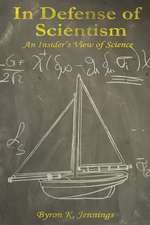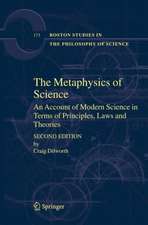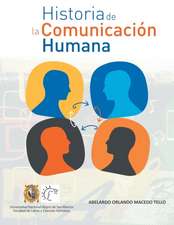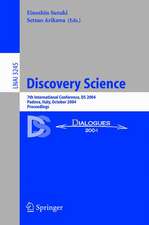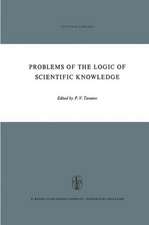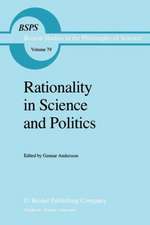Philosophy of Science Complete: A Text on Traditional Problems and Schools of Thought
Autor Edwin Hungen Limba Engleză Paperback – 31 dec 2012
Preț: 541.12 lei
Preț vechi: 709.52 lei
-24% Nou
Puncte Express: 812
Preț estimativ în valută:
103.56€ • 107.29$ • 86.43£
103.56€ • 107.29$ • 86.43£
Carte disponibilă
Livrare economică 01-15 martie
Preluare comenzi: 021 569.72.76
Specificații
ISBN-13: 9781133943037
ISBN-10: 1133943039
Pagini: 484
Dimensiuni: 188 x 231 x 18 mm
Greutate: 0.73 kg
Ediția:2
Editura: Wadsworth Publishing Company
ISBN-10: 1133943039
Pagini: 484
Dimensiuni: 188 x 231 x 18 mm
Greutate: 0.73 kg
Ediția:2
Editura: Wadsworth Publishing Company
Notă biografică
Cuprins
Preface. A Word to Instructors. A Word to Students. INTRODUCTION: WHAT IS THE PHILOSOPHY OF SCIENCE? A Tale of Two Theories: The Story of Light. BOOK I. TRADITIONAL PROBLEMS: TRUTH, EXPLANATION, AND REALITY. PART I. BASIC TYPES OF REASONING IN SCIENCE. 1. Hypotheses. 2. Deductive Reasoning. 3. Inductive Reasoning. 4. Statistical and Probalistic Reasoning. PART II. THE SEARCH FOR TRUTH. 5. Empirical Discovery of Plausible Hypotheses. 6. Empirical Evaluation I: Indirect Tests and Auxiliary Hypotheses. 7. Empirical Evaluation II: Crucial Tests and AD HOC Revisions. 8. Theoretical Justification: Theories and Their Uses. 9. Conventionalism and the Duhem-Quine Thesis. PART III. THE QUEST FOR EXPLANATION. 10. Covering-Law Thesis of Explanation. 11. Universal Laws of Nature. 12. Probalistic Explanation and Probalistic Causality. 13. Teleological Explanation, Mind, and Reductionism. 14. Other Theories of Explanation: the Contextual, the Casual, and the Unificatory. PART IV. THE PURSUIT OF REALITY. 15. The Classical View of Scientific Theories. 16. Realism Versus Instrumentalism. 17. Critiques of the Classical View. 18. Antirealism I: The Empiricist Challenge. Intermezzo: So, How Does Science Work? BOOK II. SCHOOLS OF THOUGHT: RATIONALISM, EMPIRICISM, POSITIVISM, AND CONSTRUCTIVISM PART V. RATIONALISM AND EMPIRICISM. 19. Rationalism and Then Empiricism. 20. Problems of Empiricism IA: Hume's Problem. 21. Problems of Empiricism IB: Goodman's Paradox and Hempel's Paradox. 22. Problems of Empiricism II: Problem of Observation. PART VI. THE CLASSICAL DYNASTY. 23. Logical Positivism. 24. Popper's Falsificationism. PART VII. THE WELTANSCHAUUNG REVOLUTION. 25. Introduction: Two Paradigm Theories. 26. Kuhn I: Normal Science and Revolutionary Science. 27. Kuhn II: Incommensurability and Relativism. PART VIII. TOWARDS HISTORY, SOCIOLOGY, AND ARTIFICIAL INTELLIGENCE. 28. Lakatos: The Revisionist Popperian. 29. Laudan: The Eclectic Historicist. 30. History, Sociology, and Philosophy of Science. 31. Antirealism II: The Constructivist Rebellion. 32. Artificial Intelligience and the Philosophy of Science. Epilogue. Bibliography. Index.
Recenzii
Preface. A Word to Instructors. A Word to Students. INTRODUCTION: WHAT IS THE PHILOSOPHY OF SCIENCE? A Tale of Two Theories: The Story of Light. BOOK I. TRADITIONAL PROBLEMS: TRUTH, EXPLANATION, AND REALITY. PART I. BASIC TYPES OF REASONING IN SCIENCE. 1. Hypotheses. 2. Deductive Reasoning. 3. Inductive Reasoning. 4. Statistical and Probalistic Reasoning. PART II. THE SEARCH FOR TRUTH. 5. Empirical Discovery of Plausible Hypotheses. 6. Empirical Evaluation I: Indirect Tests and Auxiliary Hypotheses. 7. Empirical Evaluation II: Crucial Tests and AD HOC Revisions. 8. Theoretical Justification: Theories and Their Uses. 9. Conventionalism and the Duhem-Quine Thesis. PART III. THE QUEST FOR EXPLANATION. 10. Covering-Law Thesis of Explanation. 11. Universal Laws of Nature. 12. Probalistic Explanation and Probalistic Causality. 13. Teleological Explanation, Mind, and Reductionism. 14. Other Theories of Explanation: the Contextual, the Casual, and the Unificatory. PART IV. THE PURSUIT OF REALITY. 15. The Classical View of Scientific Theories. 16. Realism Versus Instrumentalism. 17. Critiques of the Classical View. 18. Antirealism I: The Empiricist Challenge. Intermezzo: So, How Does Science Work? BOOK II. SCHOOLS OF THOUGHT: RATIONALISM, EMPIRICISM, POSITIVISM, AND CONSTRUCTIVISM PART V. RATIONALISM AND EMPIRICISM. 19. Rationalism and Then Empiricism. 20. Problems of Empiricism IA: Hume's Problem. 21. Problems of Empiricism IB: Goodman's Paradox and Hempel's Paradox. 22. Problems of Empiricism II: Problem of Observation. PART VI. THE CLASSICAL DYNASTY. 23. Logical Positivism. 24. Popper's Falsificationism. PART VII. THE WELTANSCHAUUNG REVOLUTION. 25. Introduction: Two Paradigm Theories. 26. Kuhn I: Normal Science and Revolutionary Science. 27. Kuhn II: Incommensurability and Relativism. PART VIII. TOWARDS HISTORY, SOCIOLOGY, AND ARTIFICIAL INTELLIGENCE. 28. Lakatos: The Revisionist Popperian. 29. Laudan: The Eclectic Historicist. 30. History, Sociology, and Philosophy of Science. 31. Antirealism II: The Constructivist Rebellion. 32. Artificial Intelligience and the Philosophy of Science. Epilogue. Bibliography. Index.
